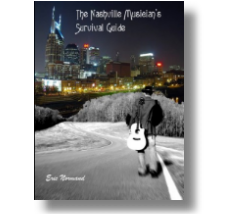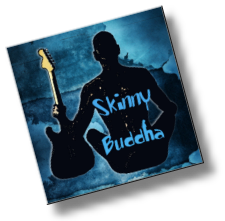
Have you ever challenged yourself with something really, really hard. I mean something so difficult that initially you weren’t even sure if you could do it? Challenges like running a marathon or completing a triathlon, learning to speak a new language, losing 100 pounds, or mastering a musical instrument are all daunting tasks that can take months or years to accomplish and require an extreme level of “stick-to-it-ness”. Initially, this challenge might not be something that you need to do, but something that you want to do, or maybe even feel compelled to do. You take on this challenge simply to see if you can do it and because you sense it will make you a better person. The reward might be unknown at the onset and not come for a long time if ever, but still you march on with this challenge because it feels right.
Many years ago I was faced with such a challenge when I was playing guitar in the New England-based band “Crossfire”. The year was 1990 and the bands leader, Rob Gourley, suggested that I learn the Eric Johnson instrumental “Cliffs of Dover”, as he felt it might be a good showcase for me at our shows. He said that this was not something he expected me to do, but that if I wanted to learn it, the band would play it.
At this point of my life I had just finished my Berklee education, an extremely challenging experience in and of itself, so the idea of learning a four-minute piece of complex guitar music didn’t sound too daunting. At least that was my initial perception.
So I embarked on this new guitar journey. I outfitted a makeshift studio in an empty bedroom at my friend, Pete’s house with a practice amp, a boombox, a reel to reel tape deck, a metronome, and a music stand. I went out and purchased a copy of Eric Johnson’s “Ah Via Musicom” on CD as well as the guitar transcription and got to work. And work it was. When I had first heard this piece of guitar magic on the radio I recognized its brilliance, but Johnson’s impeccably fluid technique almost masks the songs difficulty. He made it sound easy, and easy was something I quickly discovered this song was not.
By the time I had put a couple of afternoons into it I realized this process was going to take weeks, maybe even months to be able to do the song justice, but that was no deterrent. I quickly realized if I could master this piece, not only would it be a great showcase for me with my band, it was going to make me a better guitar player in the process.
Crossfire was a steady working band and my only job at this point in my life, performing all over New England 3 to 4 nights a week. So my daily routine during this phase consisted of sleeping late, eating a late breakfast or early lunch, and then heading over to my “guitar studio” for an afternoon of extreme woodshedding.
I began with the intro and learned as much of the opening passage as I could by ear. When I came across a phrase I couldn’t interpret I used the sheet music. When things still didn’t make sense, I used the reel to reel tape deck to slow the song down to half speed. Gradually, one phrase at a time, it began coming together. After a couple of weeks of this I could make it halfway through the song, granted with many mistakes and not very smoothly. I labored on. After about five or six weeks I knew the entire song note for note but could still not play all of it at tempo. So I began practicing the most difficult passages at slower tempos, one phrase at a time, sometimes running a one bar phrase over and over for 10 or 15 minutes, gradually nudging up the tempo of the metronome. Of course a one bar phrase of Cliffs of Dover might be a flurry of 10 or 12 notes played in about a second.
Finally, after about three months of making my friends and family crazy, shredding my fingers to the bone, and a couple of ugly moments when I almost threw the guitar through a window, I was ready to present it to the band. We made a few passes one day during a sound check/rehearsal and we were good to go. The crowd loved it when we played it later that night, and it became a staple in our set for the next two years. My performance on this piece gradually improved over that period, as the experience of playing it live helped me to further kick it up a notch. The song was so difficult to execute that I still practiced it daily during this period. Eventually I left Crossfire for another band and although I continued to play this piece, it wasn’t long before I put it aside.
Looking back, Cliffs of Dover was the hardest piece of music I have ever learned. I probably put between 200 and 300 hours into it prior to ever playing it with the band. But I do remember feeling instant results after I could play it. Performing less technical songs and solos became easier. My hands and fingers were stronger and my stamina had improved. My ear had also improved making it forever easier to learn new pieces of music.
Lately I’ve been feeling the need to challenge my playing again so I decided to bring this piece out of the closet. I sat down with it a couple of weeks ago and have been working it back up to speed ever since. It’s been 15 years, and the process of sitting down with it again is like visiting an old friend. Although not as daunting for me as it was back in 1990, it’s still a bitch, and I have a ways to go yet. Once I can get it to a point I feel comfortable with, I’ll post a video for you all to check out.
Completing this challenge was hard back then, and it’s hard again right now. But I believe it is these kinds of challenges, self-imposed or other, and the new horizons they lead us to that encapsulate the best of the human spirit.
So you just moved to Nashville, you’re a good solid player with a good attitude and excited to begin working. You don’t care about being a superstar, you just want to play music with others but you are quickly learning that this can be hard to do. You are having a hard time getting off the ground. What do you have to do to get started in this town?
Regardless of your talent level, the truth is simply that talent alone isn’t going to get you work. Nashville, like any major music Metropolis, attracts talented people by the masses. They literally flock to this place in droves. This creates a supply and demand problem that works against the musicians. Knowing and understanding this is crucial. Ultimately, the only way in is by slowly nurturing relationships that will lead to opportunities. The best place to build these relationships is in the nightclubs around town. There is no shortcut to this, it’s going to take some time so be patient.
A newcomer to Nashville recently told me his story. He moved to Nashville about a year ago with the goal of becoming a part of the country music scene here. He has been frequenting the clubs downtown with the intention of sitting in and getting to know some of the players. Even though he’s familiar with most of the standards that are being played, he’s having a hard time getting past the idea of hustling to sit in. He said that he views his reasons for networking as self-serving, and this prevents him from talking to musicians because he feels self-conscious about it – like he’s using them. The end result is that he just walks around watching bands, never talks to anybody, and then goes home.
I, as well as many others, can relate. When I first moved to Nashville I was in a similar situation. How does one introduce them self to all these total strangers and maneuver his or her way into sitting in without coming off to self-serving?
One thing that worked for me was seeking out groups of players and artists that I related to musically. This makes it much easier to form real relationships that can evolve over time. Try to find a group of players, or singer that you really connect with. Maybe you really dig their song list, or are inspired by the performances of one or more of the players in the band. If you can feel a real connection through the music, it should be easy to engage in some genuine conversations – the music is your common ground. Find out when they’re playing again and become a regular. Over time they’ll gradually get to know you and sitting in will be part of a natural progression. Maybe try to cultivate a handful of different situations like this. Also, try to find these kinds of inspiring groups that are playing either earlier shifts and/or at the less popular bars. Those situations will be more laid back and might make it more likely for them to take breaks. And that combined with a smaller crowd in general will make it easier to engage in conversation.
The key to gigging in Nashville is relationships. It’s hard to force friendships and relationships to happen, they need to naturally evolve. You need to regularly put yourself in different kinds of situations where this can happen. It just takes time, persistence, and patience. Most importantly, be a good person. Of course being proficient on your axe will help to.
There is no guarantee that this approach will allow you to achieve the kind of success you envision. But for that matter, there are no guarantees in the music business, or life in general. So just suck it up, be in it for the long haul, and get out there and start pounding the pavement. Be friendly and outgoing and put your best foot forward. Talk to people. Take an interest in their careers and lives. Try to find some common ground and build relationships with players that you relate to. If you have already tried this and haven’t yielded much results, try harder.
That’s what it takes to get started in Nashville.
So you’re thinking about moving to Nashville. You’ve heard there’s a big music industry centered here and you want to work in it. You’re ready to relocate for the right opportunity and just posted a craigslist ad to notify the Nashville music community about your availability. What kind of opportunities exist here for you?
If you’re not already living here, then the answer is none. That doesn’t mean there aren’t any opportunities here for you, just that you need to live here if you want to be in the game. The most important thing to understand about the Nashville music industry is that it is very much community oriented. Most of the people earning a living from music in Nashville have been here for years, and many of these Nashville veterans have a long list of friends that are also working in the music business. When a tour needs to hire a new player, most band leaders want to hire someone they are familiar with and will start going down their list. They want to not only know that they are hiring a competent player, but one who is easy to get along with, someone that will fit into their touring “family”. In more cases than not, that player will either be someone they know personally, or who was referred by someone they know.
The same is true of the recording community as well. You’ve got to be proficient on your instrument, but you’ve also got to be someone that’s professional, easy to get along with and has already established these prerequisites. In most cases the session leader will hire others who are already established in the recording community and a part of that family.
For newcomers, this is the world you are entering and you can’t expect people to hire you before you’ve established this kind of reputation personally. Simply posting an ad from out-of-state with an audio link of your playing and your credentials doesn’t establish friendships and relationships. You need to be here. And you need to be here for a while (think in terms of years, not months) to establish the kind of relationships that might get you hired on a tour or recording session. You must invest yourself in the community, be a good person and work hard over a long period of time to establish your reputation. This is likely the case in any music community but holds especially true in Nashville where the supply far outweighs the demand.
The Internet can do a lot, and of course there are exceptions to every rule. I have met people online, be it message boards, craigslist, what have you, and some of these virtual connections have even led to real friendships and relationships. But in most of these cases, at least for me, any real friendship that might have started on the Internet only fully materialized after meeting the other party in the flesh, so to speak, or at least through telephone conversations.
Another way to look at it would be to compare it to becoming an actor in Hollywood. They’ve already got plenty of great actors that are out of work living right in Hollywood. Are they going to hire a stranger from an Internet ad that lives 2000 miles away? Probably not. They’re more than likely going to hire somebody that is already a part of that community first.
If you relocate to any city and invest yourself in the community, you will inevitably have many relationships and connections after 5, 10, 15 years or more. Nashville is no different. Shortcuts are simply not available for most of us.
So maybe a craigslist ad, or other Internet ad might work for some to make an initial introduction, or even to begin establishing some relationships. But if you truly want to be in the game, you should at least be present at the game.
Most musicians, at one point or another, have, or probably will play a gig where one of the other musicians plays poorly or with bad taste resulting in a “painful” musical experience for some. But an even more awkward situation comes at the end of the night when the player in question starts fishing for compliments. You don’t feel a complement is warranted and don’t want to compromise your principles, but to state the totality of your feelings or say nothing might result in an awkward moment and/or damaged relationships. How do you save face without lying?
As the level of musicianship among the world’s performers can vary greatly, it is a near certainty that we will all wind up in this situation sooner later. Sometimes a less than qualified player can wind up in a situation where he or she has no business. By the time this is obvious, it’s too late and you just have to ride it out. Of course music is highly subjective, and therefore competence and taste can be subjective too. Sometimes the chemistry is just not there. Nevertheless, whether the player was an obvious hack or his or her style didn’t suit your taste, you are still faced with that odd moment at the end of the night when you might hear the words “I really enjoyed playing with you” or even worse “So what did you think of the gig?”
I recently played a gig with a local band at a nightclub in town. One of the regular members had subbed out his spot and his fill-in was a friend of the other players in the group. While this player was technically proficient and new the material, he overplayed. I mean, I didn’t know that number of notes even existed. Although the other players didn’t notice, or didn’t mind, I had great difficulty playing with this individual, and ultimately had a miserable time. At the end of the night this player said “You sound great, I really enjoyed playing with you.” Oh no, now what do I do? I was hoping he wouldn’t say anything. I thought he was tasteless and I hated playing with him, but saying that would have been construed as an insult, possibly damaging relationships within the group. To leave his complement hanging in the air and not respond would’ve also been construed as an insult. The minimal response of “thanks” might have been sufficient, but the lack of a complement in return might also have resulted in an awkward moment.
So I said “Thanks, we had some great moments. I had fun tonight.” These were all truths and I spoke this with sincerity. I was appreciative of his comment and responded accordingly with “thanks”. Even though I was in musical hell for most of the night, there were a couple of songs where it all came together – hence “some great moments”, and at a few points (probably those same moments) I actually had fun. I don’t care how bad a gig is going, there is always at least one point, even if it’s just one chorus or solo in one song, in which everything comes into alignment. Even though most of the musical moments of this night were not enjoyable for me, I chose to draw attention to the few good ones. Although I didn’t have much fun overall, I did have some fun at a couple of points, and in my mind it was those moments I was thinking of when I said “I had fun tonight”.
So I didn’t lie and I didn’t actually leave a complement, yet I was still “complimentary”. Nobody’s feelings were hurt and everybody wins.
Now I just hope I never have to play with him again.
Computer-based recording might possibly be the savior and destruction of music as a true art form. With computer based recording technology so affordable, it is now possible for anyone that wants to record music to do so. The plus side of this is that many poor struggling artists now have a chance to develop and preserve their work. The downside is new affordability has led to an oversaturation of mediocrity. There are over 4 million “bands” on MySpace, many that are terrible. Over the past two decades mediocre music has flooded cyberspace and media in general. Of course there are some undiscovered gems amongst the masses, but the percentage of poorly written and badly recorded pieces of music out there in the world is arguably much greater.
I believe this is part of what I call the dumbing down effect of music within our society. The ability for musicians of minimal proficiency to combine prerecorded loops and samples with less than optimal performances which can then be edited to something half palatable has greatly reduced the necessity for excellent musicianship in the recording process. Before the age of digital recording, most musicians that ever recorded had to have some minimum level of competency. Punching in mistakes and “flying over” whole sections of a performance were not yet practical, and in most situations this deemed it necessary to get it right on the first couple of takes. Of course there were some exceptions to this as there were plenty of recordings made of bands with minimal musicianship.
But aside from a few exceptions, prior to the digital age of recording, if you couldn’t play your ax, you didn’t record. The golden years of recording in America produced and revealed a vast collection of great musical composers and performers, many of whom possessed a depth of emotive ability and some technical prowess. Unfortunately, right around the time that computer-based recording was becoming commonplace, music education essentially vanished from our schools, and this further perpetuated a kind of musical illiteracy within the younger generation in a society that once excelled at it. Today, we have a society of “music-makers” that possess the ability to make musical recordings without necessarily needing to know how to play any instruments.
“Music for profit” is essentially a 20th-century invention, and one of its likely unintended byproducts is an overuse of music in media. Music has always been a big part of television and radio advertising, but the digital age has helped create a new level of oversaturation as generic sounding “computer music”, often the results of one composer working in a small home studio, are the backdrop to our television shows, and once great classic blues and rock anthems have been reduced to bad sounding MP3 ringtones and car commercials. With televisions on our phones and 24-7 connectivity on the web there is no escaping the constant barrage of media driven music. Music is everywhere, but all too often, without purpose.
There is one way out of this downward spiral of musical numbness. Learn to play an instrument. Commit yourself to musical excellence. Don’t just learn proficiency, learn how to express yourself with your instrument, as ultimately your instrument is an extension of your own being. Educate yourself about life and form real opinions. Have something to say and learn how to say it through the art of musical performance. When I was first learning how to play the guitar in the late 1970s, I worked at it. I practiced often. It was hard, but over the years it got easier, and I could eventually see tangible results. By the time I was into my adulthood I could consciously express emotions through musical performance. By the time I delved into computer-based recording in the early 2000s, I had already put a lifetime into the art of musical performance.
Don’t get me wrong, I’m grateful for computer-based recording. For it has allowed me to develop my compositional skills in new ways, improve my overall musicianship, and document my work, as it has for many. But the computer, and even the act of recording itself, are only as old as a newborn child when compared to the age of music itself. Music has always been there, and always will be. For music is life itself, as song and dance have always been a part of the human story.
At the end of the day, for music to survive as an art form yielding of true human expression, we must embrace music for music’s sake. Not for profit, but for life, and the expression of life. Music is an educator, a healer, and a savior. Music is the original human form of communication. Maybe one day again we will all use it for those means. True music for life, and life with true music.
The Boston Globe recently published an article titled “Pay to Play – strict enforcement of copyright’s jeopardizing live music in small venues”. The piece revealed how small music venues and coffee shops across New England have recently been targeted by PRO’s (Performance Rights Organizations) regarding the payment of licensing fees. Many of these venues, ranging from library cafés to coffee houses and eateries in strip malls, feature local performers playing music that varies from originals to covers, often playing for tips.
Any venue in which music is publicly performed is required by copyright law to purchase a performance license. Licensing fees also apply to recorded music as well. In the United States there are three PRO’s; ASCAP, BMI, and SESAC who collect these fees and distribute them to the songwriters. For any given venue, the licensing fee is determined by its size and seating capacity, the number of weekly performances, and its sales revenue among other factors. $300 yearly is a rough average for a small coffeehouse, essentially a dollar a day.
The debate has been long-lived regarding why it is necessary for a small venue that features mainly original music to pay a licensing fee, as they are not benefiting from the music of big-time songwriters. Or why should a venue that only has cover bands have to pay a fee, as obviously there’s no way of keeping track of all the different songs that are played over the course of a year making it impossible for all of those songwriters to be compensated. (It is noteworthy to mention that only venues are charged these fees, not performers).
Many businesses use music to enhance their operations, and the flipside of this argument is that these fees are simply the cost of doing business. Whether a coffee shop has original or cover performers, either way, they are having live music at their venue because it helps increase their business. While songwriters are not paid every time a local band covers their songs in some small town bar, the bar and the songwriters do benefit from the performance of that song. The bar benefits because the performance of popular music is a part of their business, if it wasn’t, they wouldn’t have it. The songwriters benefit because this live performance is essentially free advertising and inevitably must contribute to its popularity and increased overall sales.
Another way to look at this would be that it is no different than paying for a liquor license. If you want to serve beer, you’re paying a fee for the right to serve beer. While it might seem strange that the PRO’s collect fees for the performance of songs written by their members and yet these songwriters don’t receive any payment for these specific performances, the PRO’s do collect and disperse fees for all the countable plays of a given song. This wouldn’t happen for the songwriters if these organizations did not exist.
But society wouldn’t benefit from live music on a local level if there were no musical performers to play these songs. What entity represents this part of the equation.
Nightclubs, restaurants, concert halls, supermarkets – these businesses are all enhanced by the performance of music, be it recorded or performed live. If their business is enhanced by music, paying a fee for the right to do so only seems logical (assuming that the songwriters of the world continue to be paid for their work). So the business owners profits from having music or they wouldn’t be in business. The songwriters profit from writing songs or they wouldn’t be songwriters. But where does the performer fit into all this? It is a commonly known fact that most musical performers are greatly under paid for their services. Most musicians that earn a good living from their craft are either touring musicians, or part of a small, elite group of professional recording musicians, most likely in one of our three major music production cities. Overall, this is a very small percentage of those involved in music performance. Much of the live music that most people ever hear is performed by local bands and coffeehouse performers and the pay scale for most in that world is typically low.
Who will ever represent a performing musicians right for fair compensation for his or her work? 20 or 30 years ago $100 per night per player was considered good pay. In 2010, $100 per night is still considered good pay, yet inflation and cost of living increases essentially deem this as an across-the-board pay cut. Should we reevaluate our current system of PRO’s to help compensate the performers of the world? Should musicians unions revamp their approach to help this problem? Is a new type of organization needed? Music is, and has always been, an important part of our society, and the development of music as a cultural art has been greatly undervalued in recent years. If the value of musicians, and the pay that goes with that, continues to decline, who will even be able to afford to be a musician in the future?
Who will represent the musicians?
During the summer of 2008 when the Rhett Akins band was between bass players, our sound engineer Penn Robertson threw out the idea of calling his friend Oteil Burbridge to sub a few gigs, as he was currently on hiatus from his regular gig with the Allman Brothers. Apparently the brothers were on an extended break that summer and Oteil happened to be available and interested in coming out with us. The next thing I knew we were doing a handful of gigs with him and riding around on a bus listening to first-hand stories about my childhood idols. While the gigs and stories were great fun, it was the sound checks that were most memorable.
As Rhett and band are well-versed in the Allman Brothers classic material, our sound checks during this time period contained several songs from their repertoire; Blue Sky, Statesboro Blues, Don’t Keep Me Wonderin’, and Aint Wastin’ Time No More. These moments contained some great improvised jams propelled by Oteil’s masterful groove and melodic sensibility. It was almost as if a little piece of one of America’s greatest bands fell from the sky and landed on our doorstep, to be shared only in the moment with a few appreciative friends. Eventually our stint with Oteil came to an end but it was an inspired road to travel on while it lasted. One I will always remember with fondness and never forget. Thanks Oteil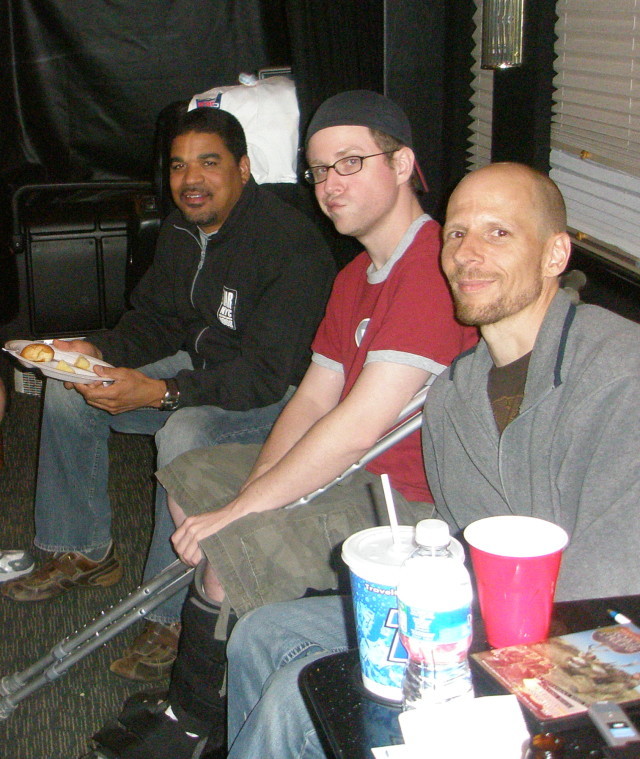
Multi-band shows on any level, be it a national act with a local opener in a concert hall, a battle of the bands at a local high school, or the Bonnaroo Festival, can be a great musical experience for both the performers, and audience. They can also be a logistical nightmare for event organizers, production companies, crew members, and the musicians. The key to these kinds of events running smoothly is highly organized and coordinated advanced planning and an overall spirit of teamwork.
Typically, the most well run multi-band shows have a designated stage manager, usually hired by the event, the production company, or the headlining act. In the days and weeks prior to the event, the stage manager will coordinate between the event buyer, the production company, local crew, and the tour managers of the bands and artists involved. In a perfect world, the proper planning and effort will result in a painless day of load-ins and load-outs, sound checks, line checks, and performances, all happening glitch free and on-time. Unfortunately, we don’t live in a perfect world.
Some of the problems that can arise might range from performers and equipment arriving late, bad weather, equipment problems, a shortage of stagehands, ineffective communication, and often, just poor planning. I was recently involved in a show that suffered from literally all of these problems.
At any multi-band show, especially on a national level, there are some unspoken rules and protocols that come into play. If the event has hired a national act, they probably signed a contract and agreed to the terms of that acts rider. Usually these riders will provide very specific guidelines regarding all of the details pertaining to the daily activities and performance requirements of that artist or band. In many situations, it also gives the artist and tour manager final say regarding opening acts, set lengths, backstage traffic, etc. All of this must be mutually agreeable in advance, but after both parties have signed off on the rider, each will have specific responsibilities and expectations. In short, the tour manager of the headlining act and the event buyer will have complete authority over the performance related events of a given show day.
If there is more than one national act, the other acts tour managers will also have a big say, but all in accordance to each acts specific rider and the agreements made when the show was advanced. This is where it can get a little grey as some artists riders might conflict with another’s. In these situations an unspoken rule comes into play, that being that the headliner has the ultimate say, followed by the artist with the second billing, followed by third billing, etc. if there are two or more acts that each receive equal billing (co-headliners), there is usually a mutual decision making between tour managers and the event buyer. The lines can become greatly blurred on a smaller scale, such as local bands performing together in a nightclub, or regional festivals, as these situations seldom have signed contracts.
Regardless of a given events level of profile, or organizational efficiency, being a team player is of utmost importance for all involved, especially the musicians.
On a recent Rhett Akins show I worked, we were co-headlining with another national artist, Ashton Shepherd. Several days prior to the show, the events stage manager contacted me and asked if our drummer would be willing to use Ashton’s drummers kit, both to save time, and much-needed stage space. After checking with our drummer, I agreed to this request, as did the band scheduled to play before us, Matt Stillwell. The event had four bands total, and the first band scheduled to play, a regional act, would be setting up their drums in front of the other drum kit. The sound checks were scheduled to take place in reverse order of the performances, and would be starting at 1:00 PM on the day of show for a 4:00 PM showtime. Sounds simple enough, right?
Not. The first thing to throw the schedule off was bad weather, as it rained in the morning pushing back the production set up. Ashton’s band began their set up at 2:00, and it was understood and accepted that the show would probably not start on time. About a half-hour into their set up, I walked out to the stage to discover the openers enormous eight piece drum kit being constructed in the middle of the undersized stage. When I asked the drum tech why he was setting up these drums before the other bands had sound checked, he replied “The stage manager said I have to have these setup by 4:00 no matter what.” I told him that the stage manager was wrong to request this, as there was simply not enough space on the tiny stage for three other bands to set up their backline and sound check. This resulted in a big argument between me and the unyielding drum tech, which resulted in another big argument with the stage manager.
The stage manager didn’t want to budge on his decision, despite the fact that he had discussed none of this with me in advance. Of course he was wrong in his actions, as this kind of decision-making was a complete breach of our rider, in addition to being just plain stupid. So rather than continue with the stalemate, I suggested asking Ashton’s drummer, Brian, if he would be willing to share the use of his kit with one more band. Brian agreed, asking simply that the positioning of his drums not be altered, a request that both Rhett and Matt Stillwell’s drummers had both previously agreed to. Perfect. Problem solved, right?
Nope. When the openers drummer was presented with this option, he said “I can’t play these drums without moving them. I need to change a few things. The height of the symbols, the height and angle of the toms, I need to move the hi hat cymbal stand so I can replace your kick pedal with my double kick pedal.” The look on Brian’s face was that of “you’ve got some nerve, kid”, but in the spirit of making this all work out, he agreed to let this unenlightened fellow make some of these changes.
In the end, it all worked out. The show started late, but all four bands play their shows to an enthusiastic crowd. This story underscores a few great points. Ashton’s drummer presented a grand gesture of goodwill will by offering to share the use of his drum kit. This is not expected in these kinds of situations, and is actually quite rare, but when it is offered, it’s another unspoken rule to simply not move the positioning of the drums, especially when specifically requested. His initial generosity, and his willingness to budge on his own principles for the common good, exemplify the meaning of the phrase ‘team player’. On the contrary, the opening band’s drummer and his tech acted in poor taste. They created an unnecessary tension between musicians and crew members and “took” something that was not offered. They created a feeling of ill will. They were essentially, a stick in the mud.
Every event contains two drastically different groups of people. The people that go to the show, and the people that are working the show. If you’re part of a band and performing at an event that has multiple bands, try to think of yourself as part of a team. A team of musicians, stagehands, crew members, and event staff all working together to present one great day or night of musical performances. You’re all on the same team, and need to work in harmony. You need to watch each other’s backs, protect each other’s gear, and work in a spirit of cooperation, not competition. No matter where you fall in the pecking order, being a team player and working towards the common good of all involved is ultimately what makes a great show. And being organized doesn’t hurt either.
Saturday, June 19, 2010 started out innocent enough when I awoke on our tour bus in a motel parking lot in Montgomery Alabama. The fact that the nearest location of any hotel to this 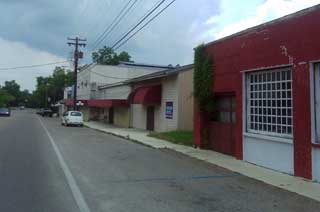 venue was a 30 mile, hour long bus ride, might have been the first clue that this was going to be a rough day. We set out at noon for this four band extravaganza at the Extreme Mud Sports Park in Eclectic, Alabama and the temperature was already into the 90s. The view from the bus window was picturesque as we wound thru this sparsely populated area of rural Alabama. The sky was beginning to cloud up a bit as we turned off the main road and began following a four wheeler down the half-mile or so “gravel” road that led into the park. The road was not in very good shape, and by the time that we realized we might be in trouble if it rained, it was too late, as we we’re already committed with no place to turn around. We came around the final corner to the “concert area” and almost
venue was a 30 mile, hour long bus ride, might have been the first clue that this was going to be a rough day. We set out at noon for this four band extravaganza at the Extreme Mud Sports Park in Eclectic, Alabama and the temperature was already into the 90s. The view from the bus window was picturesque as we wound thru this sparsely populated area of rural Alabama. The sky was beginning to cloud up a bit as we turned off the main road and began following a four wheeler down the half-mile or so “gravel” road that led into the park. The road was not in very good shape, and by the time that we realized we might be in trouble if it rained, it was too late, as we we’re already committed with no place to turn around. We came around the final corner to the “concert area” and almost 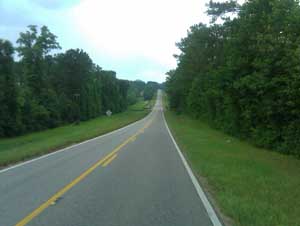 got stuck in the soft ground just backing the bus into place.
got stuck in the soft ground just backing the bus into place.
“If it rains at all, we are never going to get up that hill.” were my first words to one of the event coordinators after a brief introduction. “We got plenty of big tractors round here, don’t worry we’ll getcha out” was the response I got, and I must admit that I felt hardly reassured. I had the runner take our driver Steve to the hotel and then met the ”stage manager”, a local radio station employee whom I will refer to as “Puff the magic DJ”. I deemed him this nickname because he magically organized the daily activities by chain-smoking cigarettes while sitting in a van that was parked about 50 feet from the stage, and facing the opposite direction.
It had already rained a bit that morning, so the sound crew was running behind and our sound check had to be pushed back. We were sharing this bill was Ashton Shepherd, and were allotted the third time slot, scheduled to play at 6 PM just before Ashton. One of the only saving graces of this entire day was a selfless gesture made by Ashton’s drummer, Brian, who volunteered the use of his drum kit to the other bands to save time and stage space. Of course such a grand gesture became needlessly complicated when ‘Puff’ instructed the first band to begin setting up their drums in the middle of this tiny stage during Ashton’s band’s set up. It was inevitably up to me, apparently the only person on site to attend stage-managing school, to sort things out, and the unneeded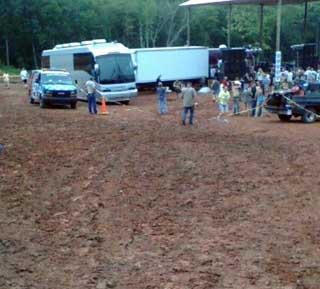 drum kit quickly vanished after a brief conversation between me and the drummers.
drum kit quickly vanished after a brief conversation between me and the drummers.
Then the rain came. It started coming down lightly sometime around 2:30, and by 3:00 it was pouring. At four o’clock it was still pouring. We watched in horror from the bus window as the only exit route, a couple of hundred feet of uphill clay colored dirt in front of us, became a nasty sea of orange mud. Meanwhile, out the other window of the bus, we viewed about 50 or so muddy looking Alabamans standing under the covered stage area in front of the sound equipment now covered in plastic, while mud covered trucks and four wheelers played in a muddy pit just beyond the stage.
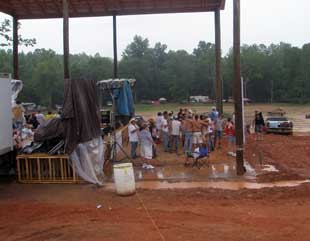 Finally, around 5:30 the rain subsided, and I sent a runner to pick up Steve at the hotel, as we now needed to figure out how we would get the bus out of this hellacious valley of mud. Meanwhile, Ashton’s band finished setting up their backline, and the first band went on just after 6:00. As the event was running two hours behind, we were now foregoing our sound checks and in “throw and go” mode. I asked ‘Puff’ to find us a table and chairs for the merch area (a request that I had previously asked him earlier in the day, earlier in the week by telephone, and in an e-mail). His response came off as this was the first time he was hearing of this and stated “I don’t know what they have here, I’ll work on it. We’ll find something”, and then he hopped back in his smoke-filled van to continue his daylong duty of staring out the window. Needless to say, the requested items never appeared despite further repeated inquiries, although Kelly was able to eventually share a table provided by Matt Stillwell’s band.
Finally, around 5:30 the rain subsided, and I sent a runner to pick up Steve at the hotel, as we now needed to figure out how we would get the bus out of this hellacious valley of mud. Meanwhile, Ashton’s band finished setting up their backline, and the first band went on just after 6:00. As the event was running two hours behind, we were now foregoing our sound checks and in “throw and go” mode. I asked ‘Puff’ to find us a table and chairs for the merch area (a request that I had previously asked him earlier in the day, earlier in the week by telephone, and in an e-mail). His response came off as this was the first time he was hearing of this and stated “I don’t know what they have here, I’ll work on it. We’ll find something”, and then he hopped back in his smoke-filled van to continue his daylong duty of staring out the window. Needless to say, the requested items never appeared despite further repeated inquiries, although Kelly was able to eventually share a table provided by Matt Stillwell’s band.
From mid afternoon on, every trip from the bus to the stage or elsewhere on the grounds required a slippery trek through three or 4 inches of heavy wet mud, caking to our feet like ankle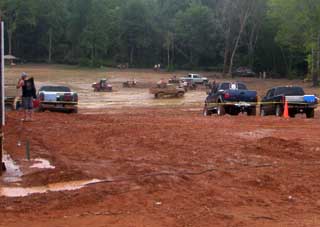 weights. At about 6:30, Steve arrived back on site, and I could see the look of amazement on his face as he appeared on the top of the hill, staring down at our pristine white bus as if it was sitting on a deserted island in the middle of the Pacific Ocean. After conversing with Steve, I approached the owners and they presented their plan to scrape off the top three or 4 inches of mud from the road with a tractor, and then to tow the bus out. Shortly after this, they began scraping, and the rest of us continued stressing.
weights. At about 6:30, Steve arrived back on site, and I could see the look of amazement on his face as he appeared on the top of the hill, staring down at our pristine white bus as if it was sitting on a deserted island in the middle of the Pacific Ocean. After conversing with Steve, I approached the owners and they presented their plan to scrape off the top three or 4 inches of mud from the road with a tractor, and then to tow the bus out. Shortly after this, they began scraping, and the rest of us continued stressing.
By 7:45, the second band ‘Matt Stillwell’ was just finishing their set and we loaded our gear onto the deck to prepare for our show. At about 8:15 we were ready to go, and Puff asked me 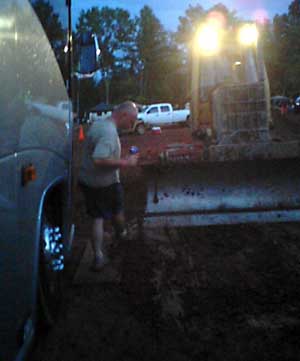 if there was anything specific he should say regarding Rhett’s introduction. I told him to mention a few of Rhett’s radio hits, and that Rhett has just released a new CD of hunting songs with Michael Waddell called ‘Bone Collector’ which is available at the merch area. So, of course, Puff delivers an intro void of any of this, and after rambling some fast talking Alabama DJ bullshit, exudes “Ladies and gentlemen please welcome to the stage Rhett Akins.”
if there was anything specific he should say regarding Rhett’s introduction. I told him to mention a few of Rhett’s radio hits, and that Rhett has just released a new CD of hunting songs with Michael Waddell called ‘Bone Collector’ which is available at the merch area. So, of course, Puff delivers an intro void of any of this, and after rambling some fast talking Alabama DJ bullshit, exudes “Ladies and gentlemen please welcome to the stage Rhett Akins.”
Midway through our set, we all witnessed what was perhaps the most exciting event of the day, that of our bus slowly moving up the hill, towed by a large tractor. I literally wanted to stop mid song and applaud as I saw it slowly disappearing from site, well on its path to solid ground. Upon this, I waved Kelly over to the stage, and asked her to organize after show transportation to the bus. She went and found Puff and requested that he had a ride ready for Rhett as soon as the set was complete, and transportation for the rest of us and our gear a few minutes later. We rocked the small but enthusiastic, mud covered crowd for about 60 minutes total, and needless to say Rhett walked off the stage to find no vehicle awaiting him. After quickly packing up our gear and clearing the stage, I went and found Puff and said “Where’s the ride? Rhett’s been waiting 10 minutes already.” “It’s not here yet?” he exclaimed. “I asked them to send somebody 5 minutes ago.” And with that, he quickly hopped in his van and drove off, never to be seen again. I can’t say I was surprised as it had long become obvious that either his memory, or his sincerity was literally nonexistent.
I found one of the owners, organized our exit, and a few minutes later we were back at the bus on the street above. The valley of mud now behind us, we could finally begin to relax. None of this kind of turmoil is ever funny in the moment, but as time is the ultimate healer, we were quickly able to see this horrific day a little more cheerfully, although we we’re now completely drained. Kelly grabbed the bottle of Crown and some solo cups, and poured a much-needed round of shots. I proposed a toast to cap off our adventures in the valley of mud. “Here’s to friends with tractors!”
I would like to add a special thanks to the guys with the big tractors, and everyone in Ashton Shepherd’s group for their generous sharing of backline, and overall team spirit.
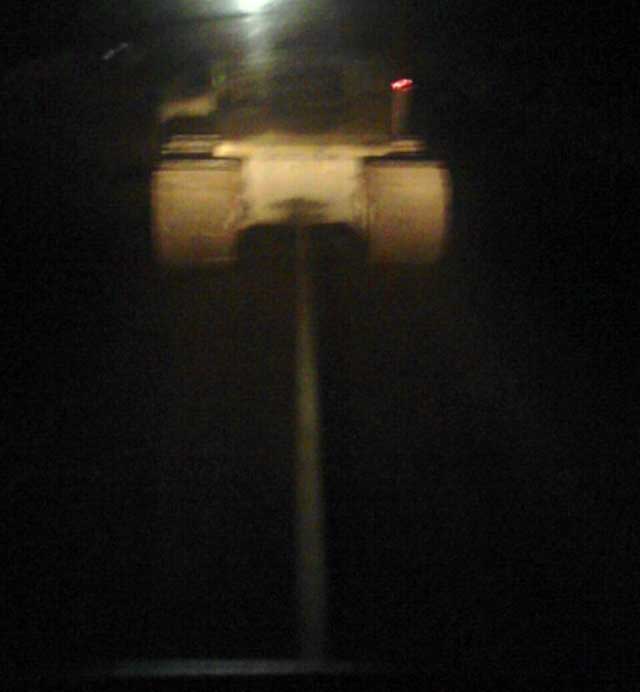
Getting a good gig is largely dependent on having the right connections. While talent and skill are certainly important attributes, knowing somebody on the inside track can be an extremely important factor when it comes to finding work.
Since my arrival to Nashville, one of the more memorable and interesting tours I’ve been fortunate enough to be a part of was the Toby Keith ‘Shock’ N’ Y’All’ tour of 2003. I had been in Nashville for about a year with no steady income to speak of, when I received a tip from friend and Toby Keith drummer, Dave MacAfee, that Toby was in need of a new guitar tech. I had previously met Dave at some of the Tuesday night hangs at the Fiddle and Steel, where I had sat in with the band he was playing with on a few occasions. Although I had moved to Nashville to pursue a career as a player, I decided to check out this opportunity, as I was badly in need of some steady income by this point.
Dave gave my number to Toby’s tour manager who hired me after a brief phone interview. I had no previous experience as a guitar tech, but I was hungry for work, and eager to learn. Ultimately, it was Dave’s recommendation that got me hired. If I didn’t know Dave, it is unlikely that I would have even heard of this opportunity. But even more importantly it was Dave’s recommendation to Toby’s tour manager that gave me instant validation. Dave had been already working for Toby for several years by this point in time, and his backing was all I needed to get my foot in the door. Once I was “in”, all I had to do was make good on my commitment, which I did.
If I hadn’t already established a reputation of being a competent, trustworthy, easy to work with player, Dave never would have recommended me for this position. In reality, if I didn’t have my act together, I probably would have never even met Dave, as he is a standup guy and a consummate professional who associates with others who are like-minded. While the old cliché “It’s not what you know, it’s who you know” is essentially true, having your act together doesn’t hurt either.
